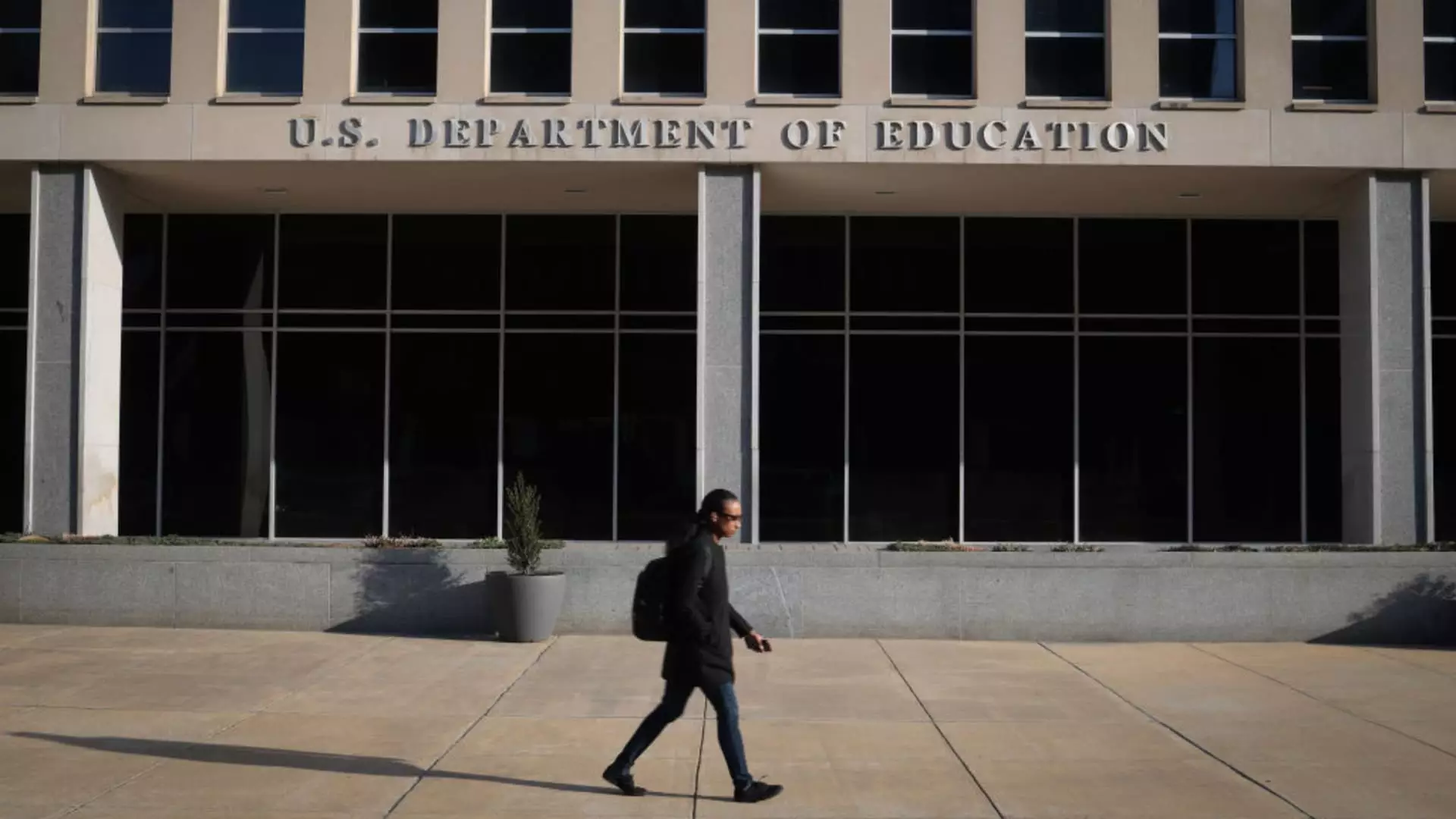The American Federation of Teachers (AFT) has taken a decisive stand against the U.S. Department of Education, issuing a lawsuit that shines a light on a chilling development in America’s student loan landscape. The AFT’s claim is grounded in a stark reality: the recent actions by the Trump administration have not only obstructed access to affordable repayment options but have also exacerbated the financial strain on millions of student loan borrowers. AFT President Randi Weingarten’s statement aptly captures the crux of the issue: this administration’s decisions appear aimed at complicating lives, particularly for those attempting to better themselves through higher education.
The Legacy of Income-Driven Repayment Plans
Income-driven repayment (IDR) plans were birthed in the 1990s as a beacon of hope for borrowers grappling with the burdensome reality of student debt. These programs, designed to align monthly payments with one’s income, essentially function as a safeguard against economic hardship, mitigating the financial risks associated with education loans. With over 12 million borrowers enrolled, these plans have become instrumental in supporting individuals through their educational pursuits. The alarming decision to halt the applications for these repayment plans sends ripples of anxiety among borrowers, particularly those in lower income brackets who are critically dependent on these safety nets.
A Misinterpretation with Grave Implications
The Education Department’s recent justification for ceasing IDR plan applications stems from a court order—a decision that many argue has been expansively misinterpreted. The ruling from the 8th U.S. Circuit Court of Appeals was ostensibly meant to halt a new initiative, dubbed SAVE, designed to ease borrowers’ repayment burdens. However, the Education Department’s expansive interpretation is punishing not just those involved in the blocked program, but also millions who had previously relied on established IDR plans. This broad-brush approach not only obstructs student borrowers from exploring other affordable repayment strategies but also sets a precarious precedent that calls into question the government’s commitment to education and social mobility.
The Human Cost of Political Gamesmanship
The ramifications of this political maneuvering are severe. Advocacy groups such as the Student Borrower Protection Center have pointed out that these disruptions arrive at a particularly inopportune moment, as many borrowers navigate a complex economic landscape punctuated by soaring living costs and rising interest rates. The ongoing uncertainty surrounding student loan repayment plans is a punchline to a sordid joke about America’s educational system—while education should be a ladder to success, for many, it feels more like an anchor. As student loans linger, the promise of higher education diminishes, leaving borrowers feeling trapped in a cycle of debt—an injustice that calls for immediate reform.
Moving Forward: A Call for Accountability
In the face of such adversity, it is vital for stakeholders—including borrowers, educators, and policymakers—to unite in demanding accountability and reform. The ongoing legal battle initiated by the AFT signifies the importance of standing guard where education and equity intersect. While it may seem easier for some to dismiss these concerns as a mere political tussle, the truth is that the stakes are far too high. Millions of Americans aspire for a better future through education, and any disruption to the systems meant to support that aspiration deserves a rigorous challenge. As we assess the future of student loans, we must prioritize the welfare of borrowers over the whims of political agendas.

